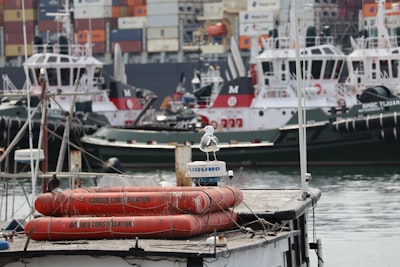Summary
In an unusually direct intervention reported by the BBC, French police slashed an overloaded inflatable boat carrying migrants attempting to cross from France to the UK. Citing immediate danger to those onboard—a crowded situation with women and children at risk—the officers waded into the Channel, depriving the smugglers of their vessel. Typically restrained by strict rules against entering the water unless it’s to rescue lives, the police made clear that this wasn’t a new policy but an exceptional reaction to life-threatening risk. The migrants scattered back to inland camps while authorities in both France and the UK weighed in, with the British government publicly welcoming the assertive move.
Analysis
The event highlights the intensifying pressures on European border authorities as migrant crossings surge. There is an underlying tension between humanitarian obligations and the enforcement of border controls, complicated by public scrutiny and political agendas. The French police action—though framed as a one-off—could signal an evolving approach under growing UK pressure. But procedural inertia persists: plans under discussion prioritize at-sea interceptions rather than more aggressive shore interventions, reflecting ongoing concern for human safety and liability.
The incident’s framing is also notable. The BBC’s presence and vivid reporting turn a rare moment into a broader symbol—either of tightening enforcement, as some in the UK desire, or of the limits still imposed by law and principle. The detail that police avoided the water until risk was clear underscores enduring ethical boundaries, even amid frustration with the migrant crisis. Meanwhile, the UK government’s positive spin—calling the incident a “significant moment”—reveals political incentives to present visible action against irregular migration, despite the complexity on the ground.
Discussion
This episode encapsulates much of the contemporary migration debate: the desperation of migrants, the evolving tactics of smugglers, the political theatre of border security, and the moral calculus facing those enforcing the rules. France and the UK each face domestic pressures, while migrants—fleeing poverty, danger, or despair—risk life and limb for safety or opportunity.
A critical question emerges: Does making crossings more dangerous deter attempts or merely heighten risk for the desperate? The chaotic scenes described—a panicked rush, children in distress, a slashed boat—underscore that policy shifts can have life-or-death consequences instantly felt at the water’s edge. Moreover, the spectacle of the intervention, amplified by media coverage, can serve different narratives depending on perspective: triumph for those demanding tough action; tragedy for those emphasizing human costs.
In the wider context, the story is less about specific tactics (boats slashed, new procedures considered) and more about the persistent problem of displacement and the limited, reactive toolkit with which European states presently respond. What changes, if any, will actually improve safety, manage irregular migration, and address root causes upstream? As politicians and officials debate, the lived reality for migrants—and the communities on both sides of the Channel—remains turbulent and unresolved.
Ultimately, this incident prompts us to ask: Are we witnessing a meaningful policy shift, a one-off response, or simply an ongoing cycle of improvisation without clear resolution? And what, most pressingly, is the cost—moral, political, and human—of confronting border crises with knives drawn on the shoreline?

Comments
No comments yet. Be the first to comment!